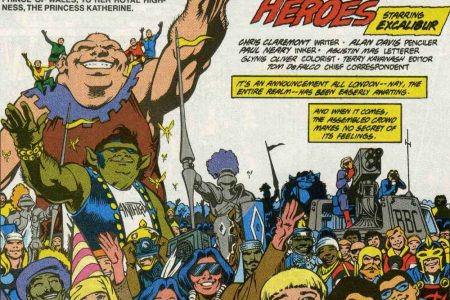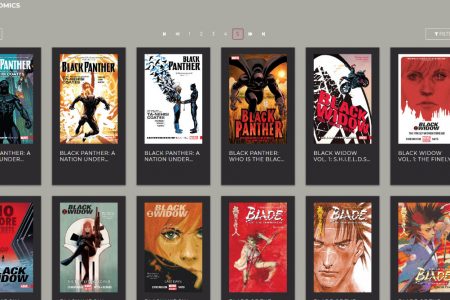It seems the right time to talk about this book after my long rambling review of X-Men: First Class. My love of the X-Men might have had some impact in my enjoyment of the film, but that doesn’t affect my enjoyment of the books I read as a teenager nor my affection for the creators of that work.
This is a strange book: compiling a collection of interviews with writers and artists who have worked on the X-Men leads to a book that becomes dated the moment it is published, which is perhaps why I found this book for £2.50 in the sale section of Forbidden Planet. However, it is a nice way to provide a voice for creators from the previous generation and allow them to share their stories on what was once the dominant franchise in superhero comic books.
The book doesn’t interview everyone involved with the history of the X-Men – there are a lot of people who have had input in the >40-year history – and the book admits that fact up front. It’s a good list (although I would have liked an interview with Ann Nocenti, who edited the books at the times when they started to expand and become really successful, and Jim Lee would have been a good choice for an artist with an impact on the book): Stan Lee, Roy Thomas, Neal Adams, Chris Claremont, Dave Cockrum, John Byrne, Alan Davis, Louise Simonson, Marc Silvestri, Bob Harras, Scott Lobdell, Chris Bachalo, Grant Morrison, Mark Millar.
Tom DeFalco, former Editor-In-Chief at Marvel, does the interviews but, although he tries to keep things on topic, he does have a tendency to ask more general questions than the remit of the book would suggest (such as talking to Neal Adams for several pages about his breaking into the field of comics and his work before starting on X-Men). Most creators are given an equal number of pages, although the pages do include boxed sections with historical information about the X-Men and some artwork and script pages; however, Chris Claremont rightfully gets the most pages, and there is a lot to talk about and is perhaps the most interesting for a reader who grew up on The Uncanny X-Men and The New Mutants. The sections with Roy Thomas and Dave Cockrum provide some nice details about the decisions that were made leading into the new version of the book that would become so popular, and some Cockrum character guides for some of the new characters.
The interview with John Byrne is interesting, including his thoughts on what happened and the work he did after the landmark run with Claremont (he did some Wolverine work, briefly wrote script over some plots before working on X-Men: The Hidden Years). We get different views on the Claremont/Byrne split from Claremont, Byrne and Louise Simonson (who was editor at the time), but the book doesn’t veer into troublesome areas too much – the section with Bob Harras seems to be deliberately diplomatic and avoid saying anything problematic (it was interesting to see that Harras had started out as a salesman in stores before lucking into an editorial assistant position at Marvel), even though he was in charge of the X-books in the most tumultuous time of its history: Claremont leaving the books, the rise of Jim Lee and Rob Liefeld on the books before the exodus to Image, not to mention the trouble that Marvel was having in the mid-1990s and Harras’ elevation to Editor-In-Chief.
The interview with Scott Lobdell goes some way to making me reassess him – I’m one of those readers who stopped reading the X-books eventually after Claremont left, but not before I had read quite a few stories that he wrote, so I incorrectly associate him with the negativity I perceive with that time – and he seems like a decent human being. As with the other artists in the book, DeFalco spends too much time talking about how they work and got into comics when talking to Chris Bachalo, but the interviews with Grant Morrison and Mark Millar make up for this, and Millar isn’t in hyper self-promotion mode so he makes some decent points for a change. As a whole, the book is an oddity, but it is a sufficiently interesting oddity to warrant a purchase for a former X-fan like myself.




